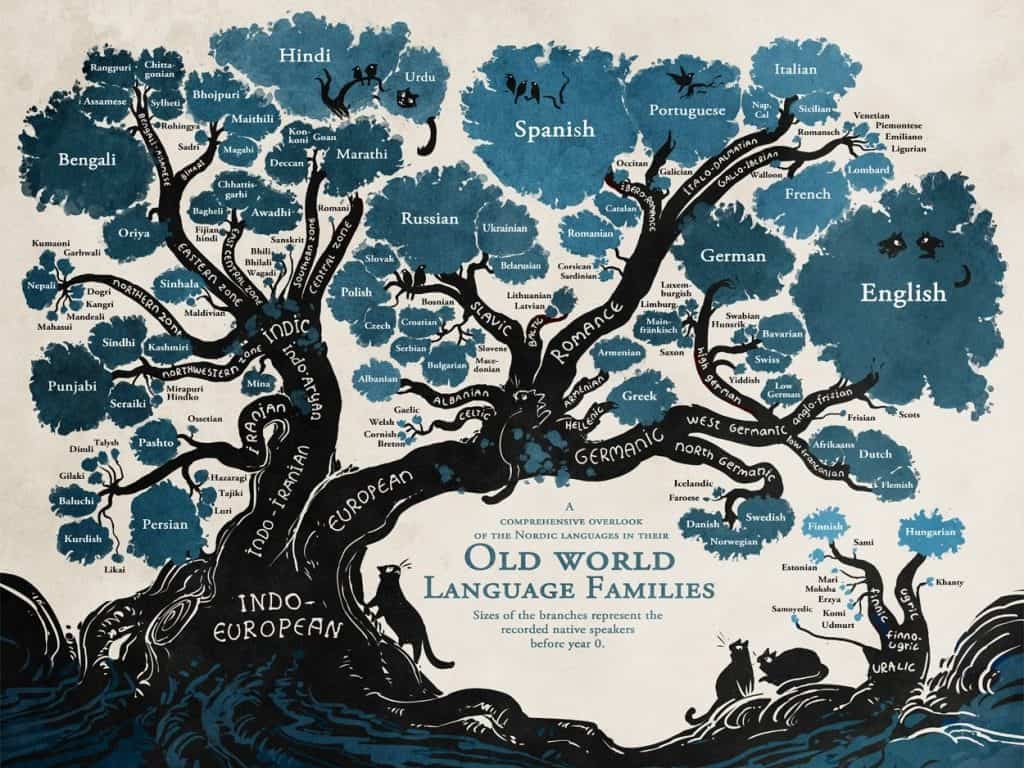Word origins are a treasure chest of information about English.
One of my favourite things to do when I hear a new word is trying to guess its origin. Virtually all European languages come from the same root Indo-European language of ancient times. To this day, there are many words that sound similar in Spanish, French, English, German, Italian and others.
Take the word English ‘night’ for example. It is similar to the French nuit, the Spanish noche and the German Nacht. Even complex words can have similar origins. ‘Astronomy’ is astronomie in German and French, and astronomia in Spanish. The roots of the word are from the Greek ‘astro’, for star and ‘nomos’, for arrangement.

All the major European languages come from the same origin language, and so share similar words.
But how does any of this help you learn English? When you develop the habit of breaking down words into their roots, you suddenly find yourself able to understand larger words you had never heard before.
The history behind the structure of a word is called its etymology and words that have similar structures over different languages are said to be cognate. You can try finding the meanings of those two words by studying their structure.
What I like about this method is that you almost never forget the main roots in English. The Greek ‘logos’ for ‘study of’ occurs so many times in English that you can guess the meaning of any word that ends in it. Take the word ‘etymology’. It ends with -logy, so you know it’s the study of something. ‘Etumon’ is Greek for ‘truth’. Therefore, ‘etymology’ is ‘the study of truth’.
Besides being informative, word etymology can be quiet fun and is often used by linguists to trace the movement of people and cultures across history. ‘Linguist’ is another word you can try to decipher. (Hint: think of the words ‘lingua’ and ‘language’).

‘Gastronomy’ = gaster (stomach) + nomos (arrangement/law)
Once you get in the habit of identifying word roots, you begin to automatically register them when you listen and voila! your English improves. Try it out.
Want more learning tips? Visit our Language Learning Tip blog.
About the Author
Dagmawi is a man of many hats. He was written web content, both as a journalist and creatively. An engineer by training, he also has experience with marketing and business development. But travel and writing are his two passions and he is always on the search for greater opportunities to express himself through the written word. Follow him on Twitter.

Want to learn English?
Are you learning English? Here's how to learn with Shane English School.

